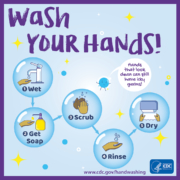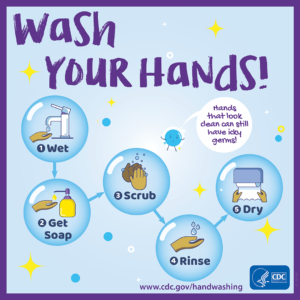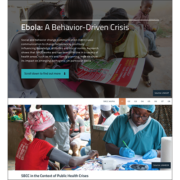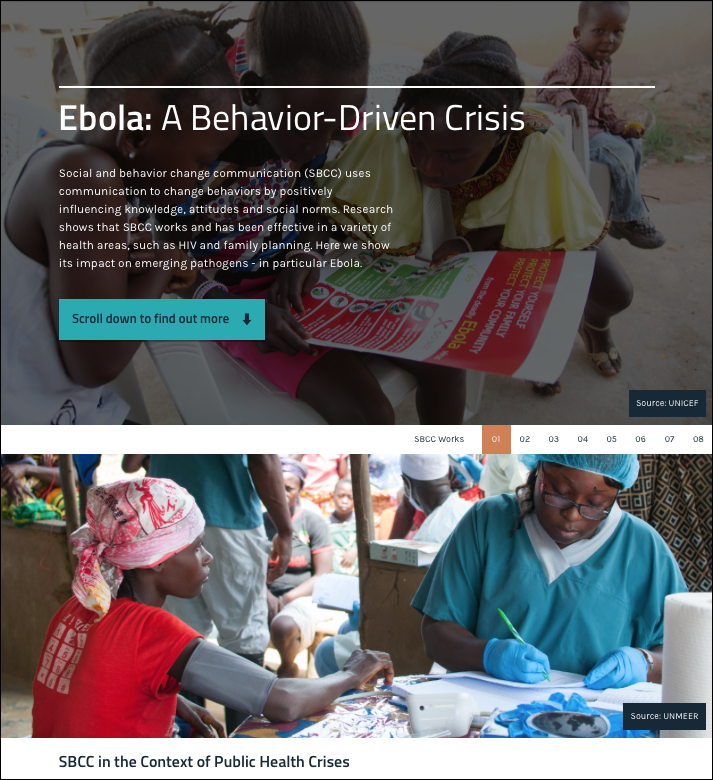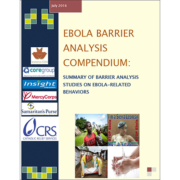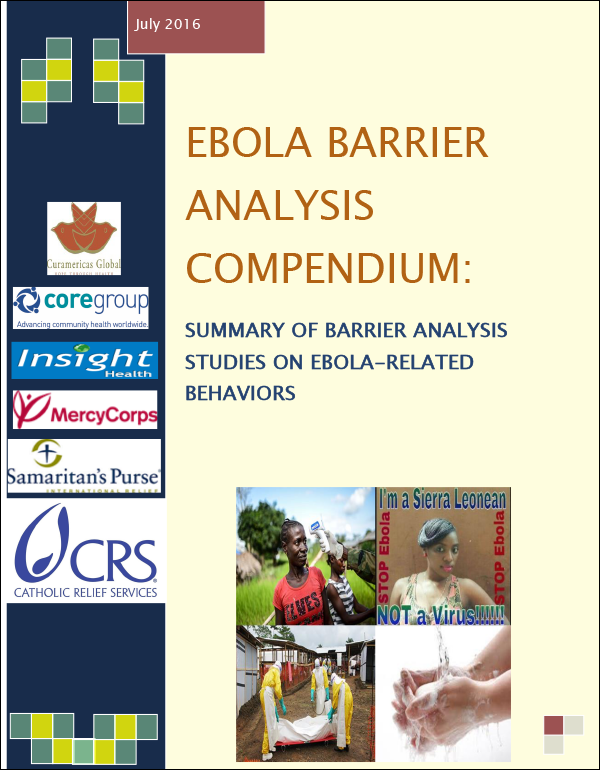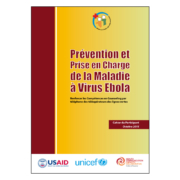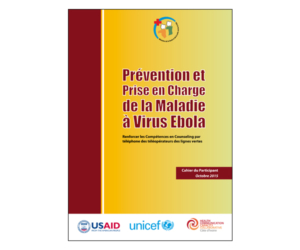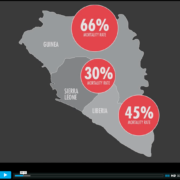This paper summarizes gaps in the knowledge on uptake of preventive measures for Ebola Virus Disease (EVD), findings from studies that have been conducted on treatment and management of EVD, Barrier Analysis studies on behaviors related to EVD, and the lessons learned from these studies. This paper is primarily addressed to governments, NGOs, Faith-based organizations (FBOs), Community-based organization (CBOs), social and behavioral change professionals and frontline workers, researchers, and program planners. It is intended for anyone interested in understanding the key behavioral determinants that affect uptake of behaviors that help in the prevention, early treatment and management of EVD, other communicable diseases similar to EVD (e.g., Marburg Virus Disease), and diseases that are transmitted by some of the behaviors studied (e.g., hand washing with soap).
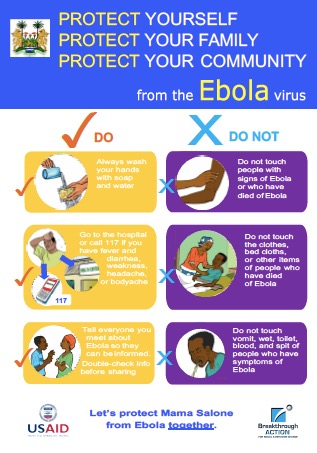 This poster illustrates the correct ways to protect against Ebola. For example: do not touch people with signs of Ebola or who have died of Ebola, but instead always wash your hands with soap and water.
This poster illustrates the correct ways to protect against Ebola. For example: do not touch people with signs of Ebola or who have died of Ebola, but instead always wash your hands with soap and water.
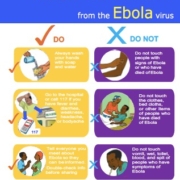
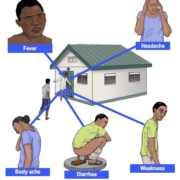
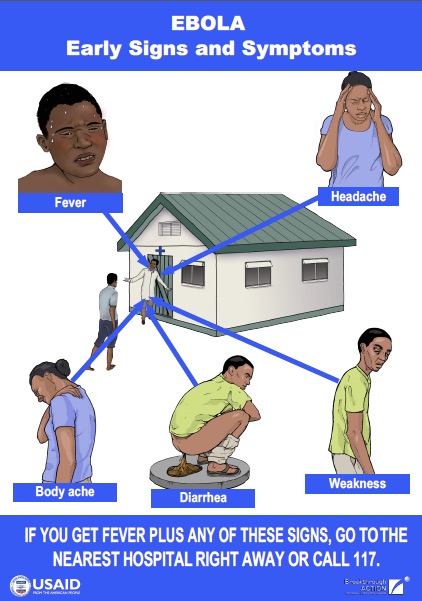 This poster illustrates the early signs and symptoms of Ebola. Early symptoms include: fever, headache, body ache, diarrhea and weakness.
This poster illustrates the early signs and symptoms of Ebola. Early symptoms include: fever, headache, body ache, diarrhea and weakness.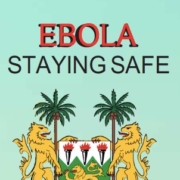
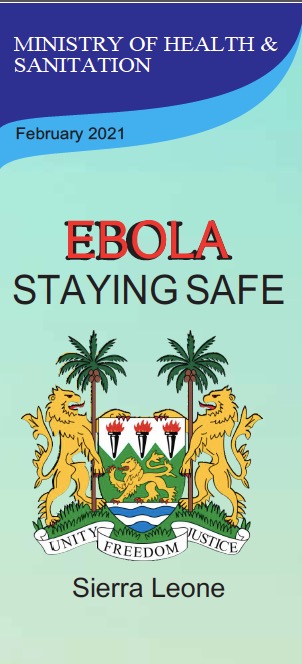 This illustrated brochure provides facts on EVD, how Ebola is spread, prevention methods and signs and symptoms.
This illustrated brochure provides facts on EVD, how Ebola is spread, prevention methods and signs and symptoms.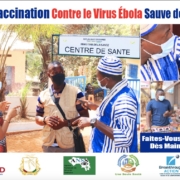
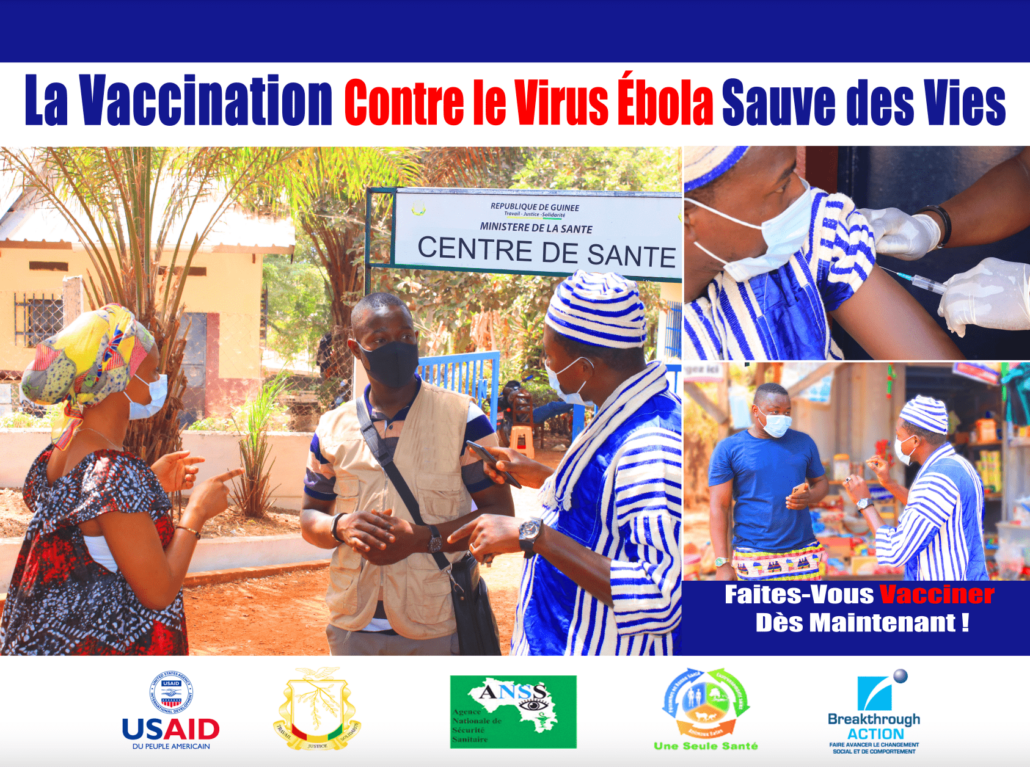 These visuals are used as billboards to encourage communities to get vaccinated, and are available in various sizes and formats.
These visuals are used as billboards to encourage communities to get vaccinated, and are available in various sizes and formats.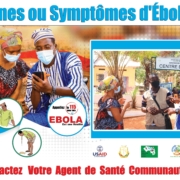
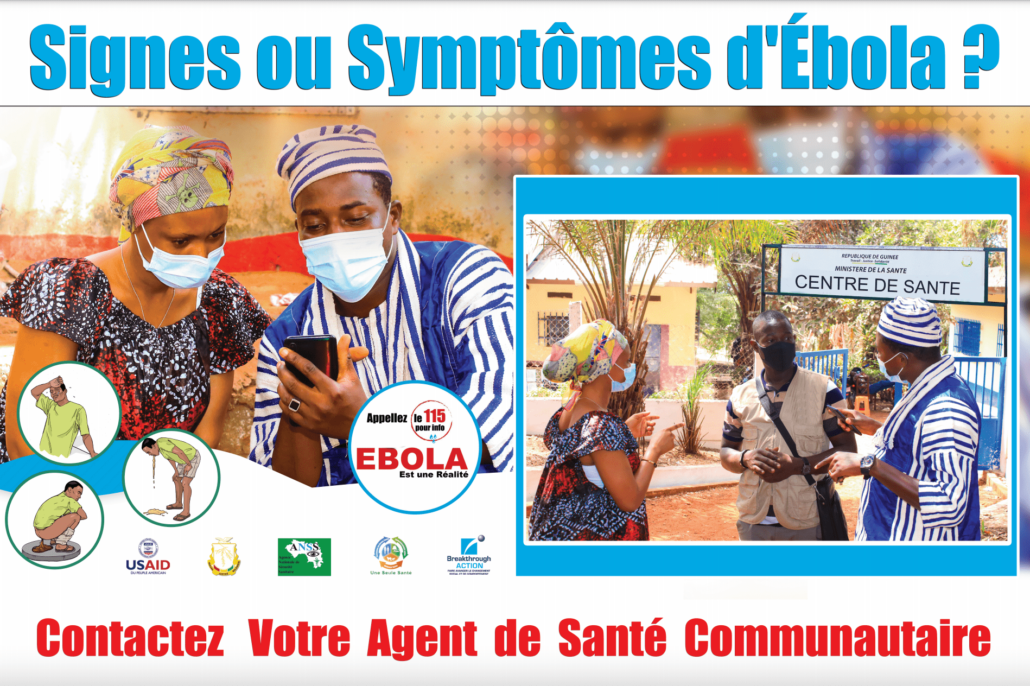 This visual, used as a billboard, illustrates the signs and symptoms of Ebola, and refers the public to local community agents.
This visual, used as a billboard, illustrates the signs and symptoms of Ebola, and refers the public to local community agents.